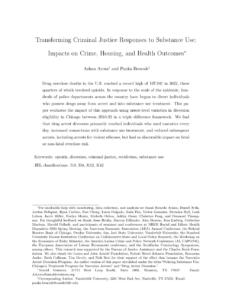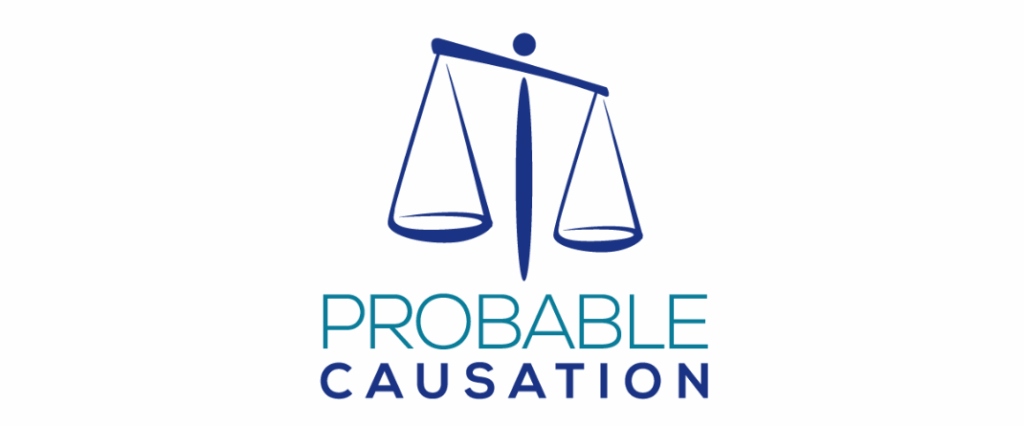Jun 2023
Narcotics Arrest Diversion Program (NADP) Research Brief
This research brief highlights early findings from Chicago’s Narcotics Arrest Diversion Program, which offers people arrested on non-violent, low-level drug offenses the opportunity to receive substance use treatment, including medication-assisted treatment, instead of a criminal record or jail time.

Transforming Criminal Justice Responses to Substance Use: Impacts on Crime, Housing, and Health Outcomes
This paper evaluates the impact of diverting individuals who possess drugs away from arrest and into substance use treatment in Chicago between 2010-2022.

Agent-Based Model of Combined Community- and Jail-Based Take-Home Naloxone Distribution
This paper outlines the impact and cost-effectiveness of naloxone distribution, particularly for people facing criminal justice involvement.

Empirical Analysis of Prediction Mistakes in New York City Pretrial Data

Brookings Institution Commentary: Making the invisible epidemic visible
Using new data from a large urban trauma center in Chicago, we document substantial under-reporting of domestic violence at the time of receiving medical care.
Latest Updates
Research on cognitive behavioral therapy for at-risk youth
Dr. Nour Abdul-Razzak joins host Jennifer Doleac on the Probable Causation podcast to discuss the Choose to Change program—an intervention that integrates trauma-informed therapy with comprehensive support to reduce youth violence and improve educational outcomes.

Deaths of decision-making are killing American teens. Schools can fix it.
Crime Lab executive director Katie Hill pens an op-ed for Brookings about how cognitive behavioral programs can teach teens decision-making skills that can dramatically reduce violence and save lives – often at little or no additional cost.

John McWhorter & Jens Ludwig – The Unexpected Origins of American Gun Violence
Jens Ludwig and John McWhorter join The Glenn Show with Glenn Loury to discuss Ludwig’s latest book, “Unforgiving Places: The Unexpected Origins of American Gun Violence.” Ludwig argues that much of the gun violence we observe in America arises from in-the-moment disputes rather than premeditated actions. He suggests that by applying principles from behavioral science, we can de-escalate altercations before things turn violent.

